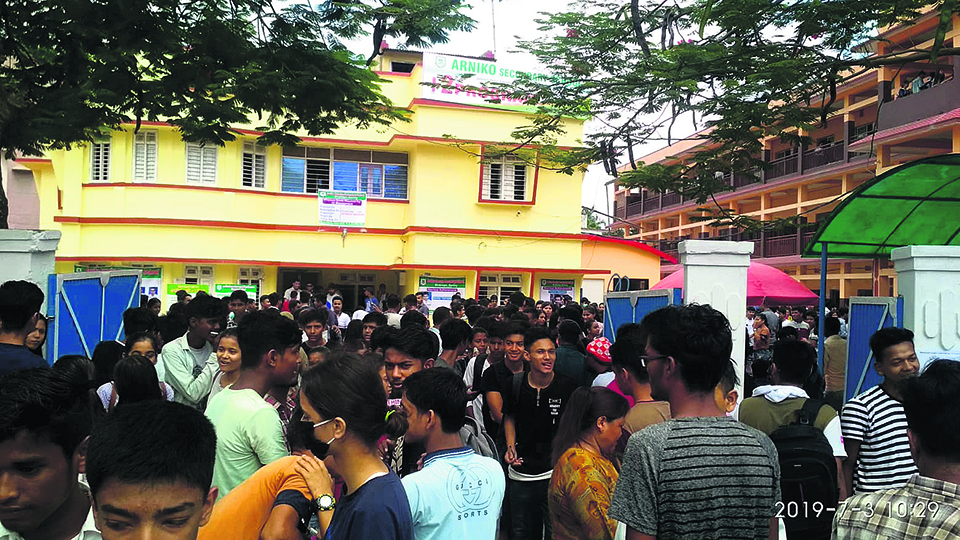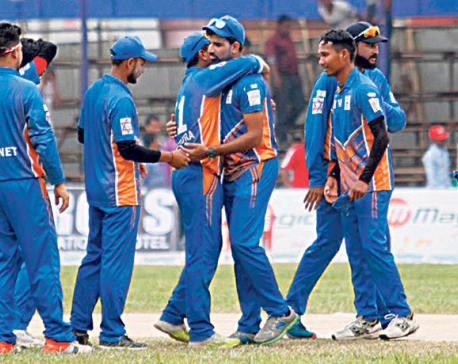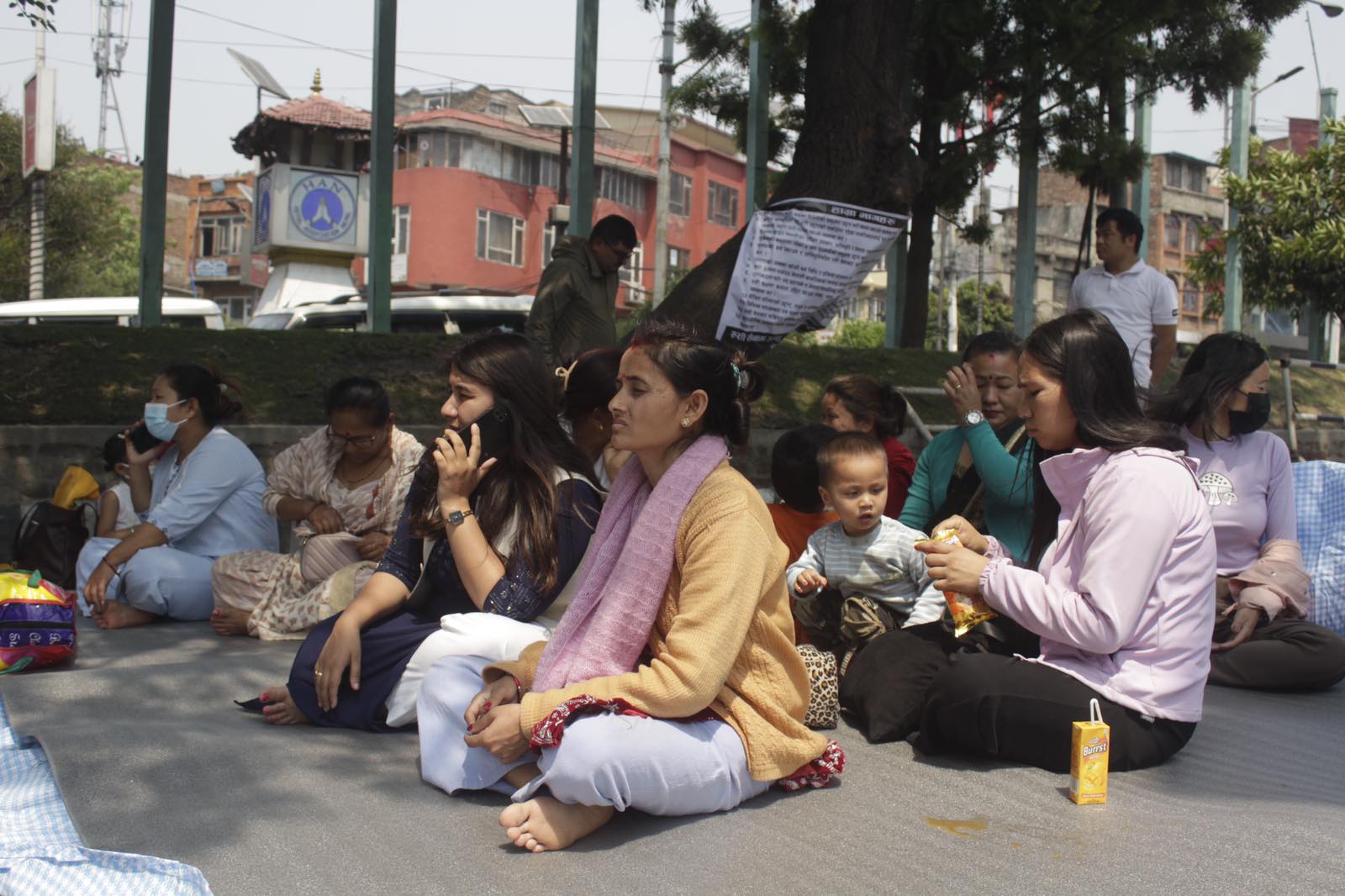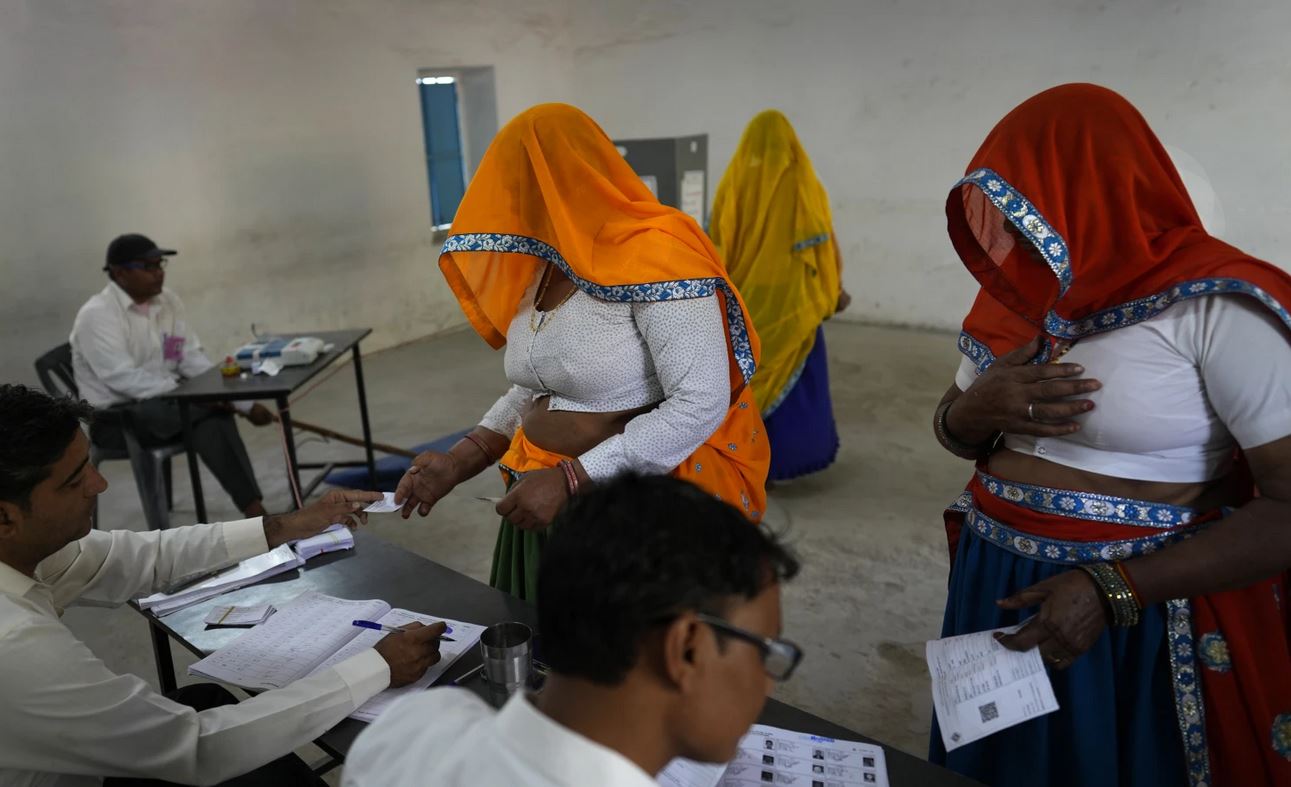
OR
Journey after SEE
‘After Kathmandu, students prefer to study in Biratnagar’
Published On: July 4, 2019 07:00 AM NPT By: Binod Subedi

BIRATNAGAR, July 4: Until five years ago, Biratnagar was one of the cities in the country from where thousands of students would come to Kathmandu and other destinations for better quality education after getting through the secondary level.
Things have drastically changed now, according to Rajesh Karki, president of Higher Institution and Secondary Schools’ Education, Nepal (HISSAN), Morang. “Now Biratnagar itself is an education hub,” he claims.
KC states that a growing number of higher secondary schools in Biratnagar are offering a variety of course for students. And their fee structure is also far affordable, he adds.
“If you go to Kathmandu or other places for higher studies after SEE, you have to spend manifold than you spend here. And look at the quality, Biratnagar is offering the best quality,” he said.
He further stated that along with private institutions, the government colleges have also been upgrading themselves to students’ need. “For instance, Mahendra Morang College is doing pretty good. It has some of best teachers and provides a great learning environment for students.”
Ameet Dhakal, a teacher at Orchid College of Biratnagar, both students and parents are happy with the quality of education Biratnagar is offering. “In Biratnagar, you can find many colleges and higher secondary schools that offer good quality education. And they are not very expensive either” he said. “Be it about teachers’ quality, infrastructures, technology, we are not behind anyone,” he claimed.
Dhakal further stated that there is an excellent record of students from Biratnagar. “Be it for engineering, medical or technical fields, students from here do not have to struggle for admission in other colleges after passing out,” he said. And Dhakal even claimed that it is Biratnagar, the best education hub in the country, after Kathmandu.
“Earlier our children would go to other places for studies, but now students from many parts of the country come here. Quality education in affordable fees is the main attraction,” he said. “The living cost here is very low. So, you will have a decent life, education, bright future ahead if you are studying in Biratnagar after SEE,” he claimed.
Biratnagar indeed has been attracting students not only from inside the country but also from India. Even for the bachelors level, Indian students come to the city. “Earlier only students from the border side Indian towns use to study in Biratnagar colleges. But nowadays they are coming from other parts of India, too,” Dhakal said.
Meanwhile, Karki claimed that 90 percent of Biratnagar students study in the city itself after SEE. Most of them choose private institutions, and few join community schools. Until a few years ago, when there were not many colleges and schools in Biratnagar, they would go to Kathmandu, Pokhara and many would also go to India.
“Biratnagar retains 90 percent of its SEE students. Only around 10 percent go elsewhere for higher education. Most of the students here prefer studying in private institutions rather than community schools,” he said.”Our record is good. Our students are successful not only in getting admission in the nation’s prestigious schools and colleges but also in best institutions, universities abroad,” he added.
As per the record of the HISSAN, Morang, there are 45 higher secondary schools in operation in the district. Out of this, 37 are private. Both private and community colleges offer technical education. Students with a financially weak background generally choose technical courses as these are relatively cheaper and shorter in duration.
“We are ahead in both general and technical education. Schools and colleges are offering standard courses in collaboration with national and international institutions,” Karki said. He added that there are choices for students with varied interests and backgrounds.
“Students here have choices to study engineering, medicine, agriculture, pharmacy, botany, health, education, floriculture, among others,” Karki said.
You May Like This

66 students to be barred from taking SEE in Tanahun
TANAHUN, March 13: This year around 66 students of Tanahun will be prevented from appearing in the Secondary Education Examination (SEE)... Read More...

Kathmandu on top with third consecutive victory, Biratnagar registers first win
DHANGADHI, April 5: Kathmandu Goldens has continued its winning streak in the second Dhangadhi Premier League with an 11-run win over... Read More...

202 students in Ilam barred from taking SEE
ILLAM, March 16: Two hundred and two students in Ilam district have not been able to appear in the Secondary... Read More...

Just In
- Indians vote in the first phase of the world’s largest election as Modi seeks a third term
- Kushal Dixit selected for London Marathon
- Nepal faces Hong Kong today for ACC Emerging Teams Asia Cup
- 286 new industries registered in Nepal in first nine months of current FY, attracting Rs 165 billion investment
- UML's National Convention Representatives Council meeting today
- Gandaki Province CM assigns ministerial portfolios to Hari Bahadur Chuman and Deepak Manange
- 352 climbers obtain permits to ascend Mount Everest this season
- 16 candidates shortlisted for CEO position at Nepal Tourism Board






_20220508065243.jpg)











Leave A Comment